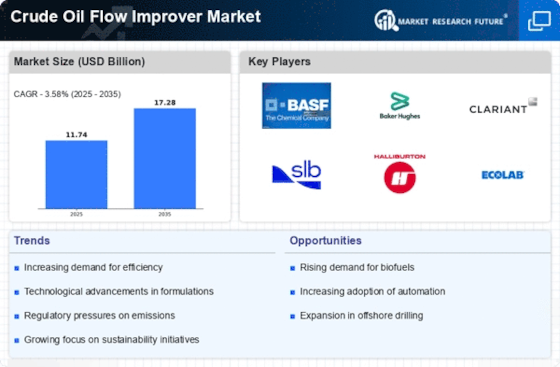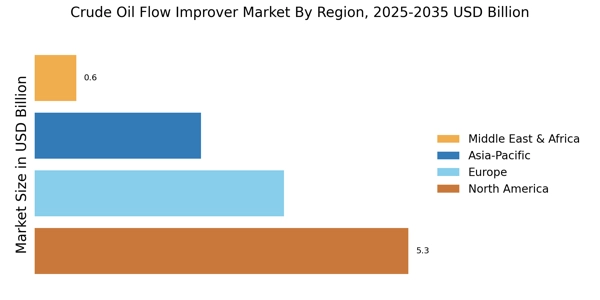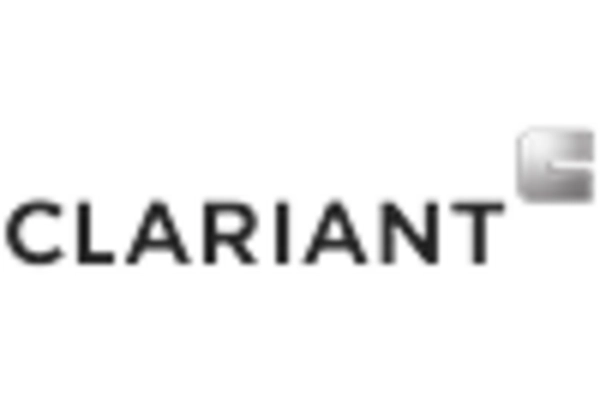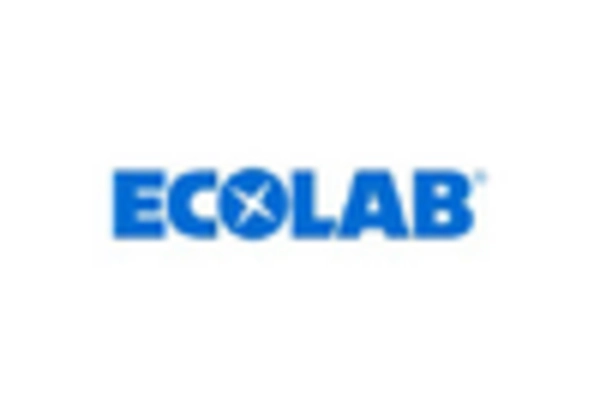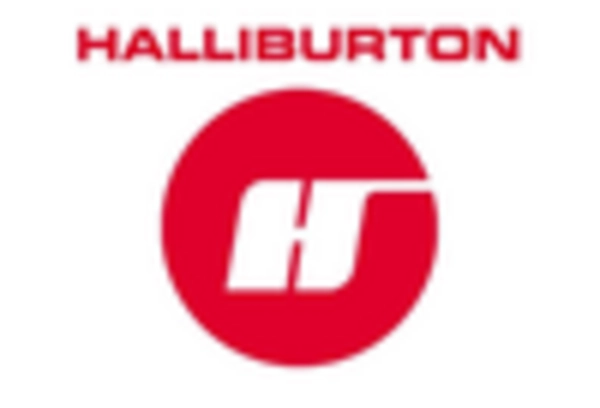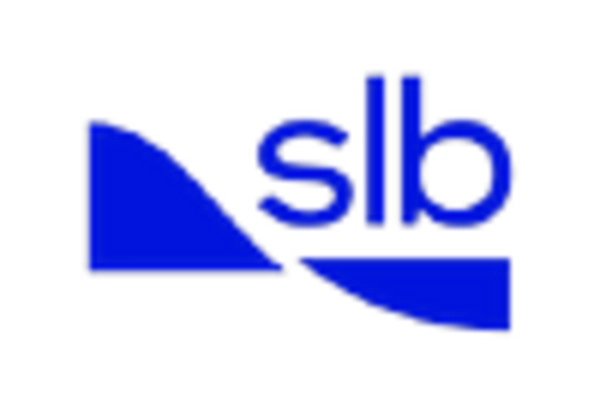Rising Production of Unconventional Oil
The Crude Oil Flow Improver Market is influenced by the rising production of unconventional oil sources, such as shale oil and tar sands. These sources often present challenges in terms of viscosity and flow characteristics, necessitating the use of flow improvers to ensure efficient transportation and processing. As production from unconventional sources continues to expand, the need for effective flow management solutions becomes increasingly critical. Reports indicate that unconventional oil production could account for over 60% of total oil output in the coming years. This shift is likely to drive the demand for crude oil flow improvers, as operators seek to mitigate flow assurance issues and enhance overall operational efficiency.
Growing Investment in Oil Infrastructure
The Crude Oil Flow Improver Market is benefiting from growing investment in oil infrastructure. As countries seek to enhance their energy security and meet rising demand, significant capital is being allocated to develop and upgrade oil transportation networks. This includes pipelines, refineries, and storage facilities, all of which require effective flow management solutions. The expansion of infrastructure is expected to drive the demand for crude oil flow improvers, as operators look to ensure efficient and reliable transport of crude oil. Furthermore, investments in infrastructure are likely to create opportunities for innovation within the Crude Oil Flow Improver Market, as companies seek to integrate advanced flow management technologies into their operations.
Increasing Demand for Enhanced Oil Recovery
The Crude Oil Flow Improver Market is experiencing a surge in demand for enhanced oil recovery (EOR) techniques. As conventional oil reserves deplete, operators are increasingly turning to EOR methods to maximize extraction from existing fields. This trend is driven by the need to maintain production levels and optimize resource utilization. According to recent estimates, EOR techniques can potentially increase recovery rates by 10 to 20%, making them an attractive option for oil producers. Consequently, the demand for crude oil flow improvers, which facilitate these processes, is expected to rise significantly. The Crude Oil Flow Improver Market is thus poised for growth as companies seek to implement innovative solutions that enhance oil recovery efficiency.
Technological Innovations in Flow Improvement
Technological innovations play a pivotal role in the Crude Oil Flow Improver Market. Advances in chemical formulations and application techniques are leading to the development of more effective flow improvers that enhance crude oil transportability. Innovations such as nanotechnology and smart additives are being explored to improve the performance of flow improvers under varying conditions. These advancements not only optimize flow rates but also reduce operational costs for oil producers. As technology continues to evolve, the Crude Oil Flow Improver Market is likely to witness a shift towards more sophisticated solutions that address the complexities of modern oil production and transportation.
Regulatory Pressure for Environmental Compliance
The Crude Oil Flow Improver Market is also shaped by increasing regulatory pressure for environmental compliance. Governments worldwide are implementing stricter regulations aimed at reducing emissions and minimizing environmental impact from oil extraction and transportation. As a result, oil companies are compelled to adopt more sustainable practices, including the use of eco-friendly flow improvers. These additives not only enhance flow efficiency but also align with environmental standards. The market for crude oil flow improvers is expected to grow as companies invest in compliant solutions that reduce their ecological footprint while maintaining operational efficiency. This regulatory landscape presents both challenges and opportunities for the Crude Oil Flow Improver Market.


